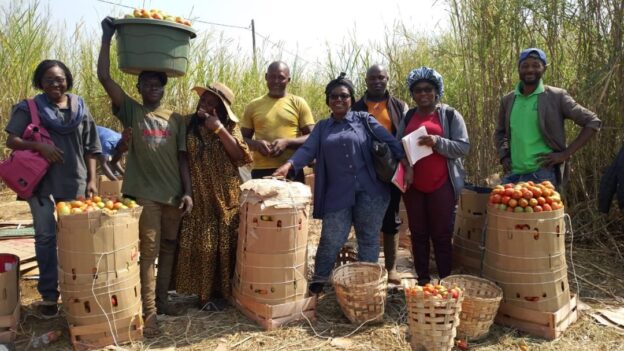Stakes and challenges of the newly crafted TV program were officially presented on Friday, 16th of February, 2024 in Yaounde.
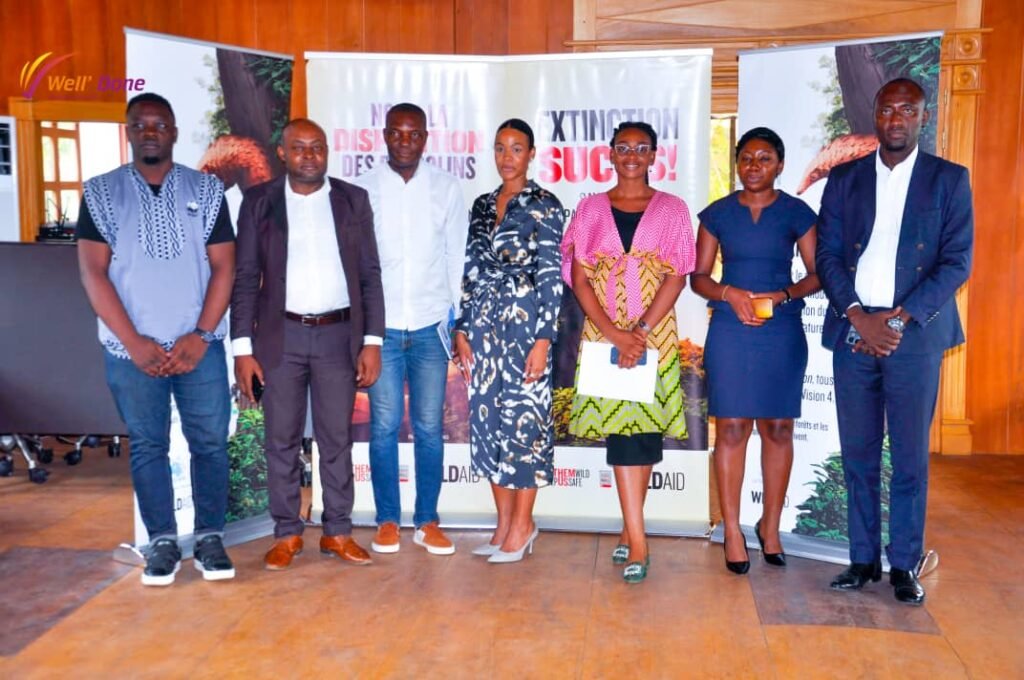
Leading international Non-Governmental Organization dedicated to ending illegal trade in wildlife and environmental protection, WildAid, launches a new debate show discussing Cameroon’s spectacular natural heritage and how best to protect it.
To announce this new television program, the staff of WildAid alongside key partners and government officials expressed themselves in a press conference organized on February 16, 2024, in Yaounde, Cameroon.
Stakes and Challenges of Wild Cameroon
During the presser, media men were informed of the stakes and challenges of the new television show debate known as “Wild Cameroon” that will be broadcasted by local TV channel, Vision 4.
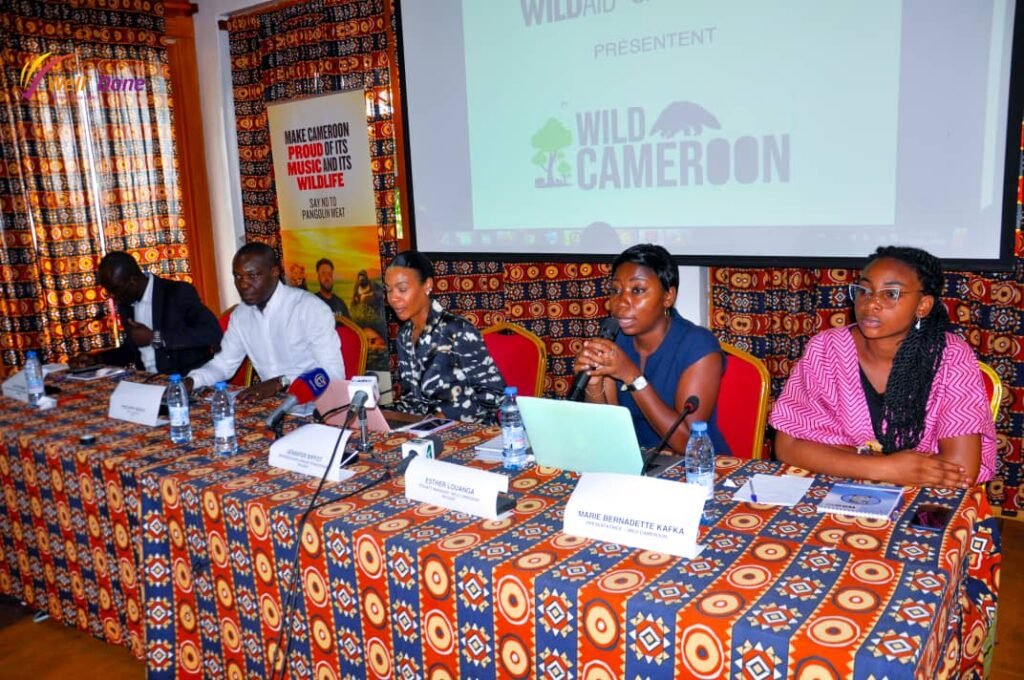
Jennifer Biffot, WildAid’s Francophone Africa Representative said Wild Cameroon is an innovative television show debate that will help to upgrade the knowledge and understanding of the population on some key topics and under-reported stories.
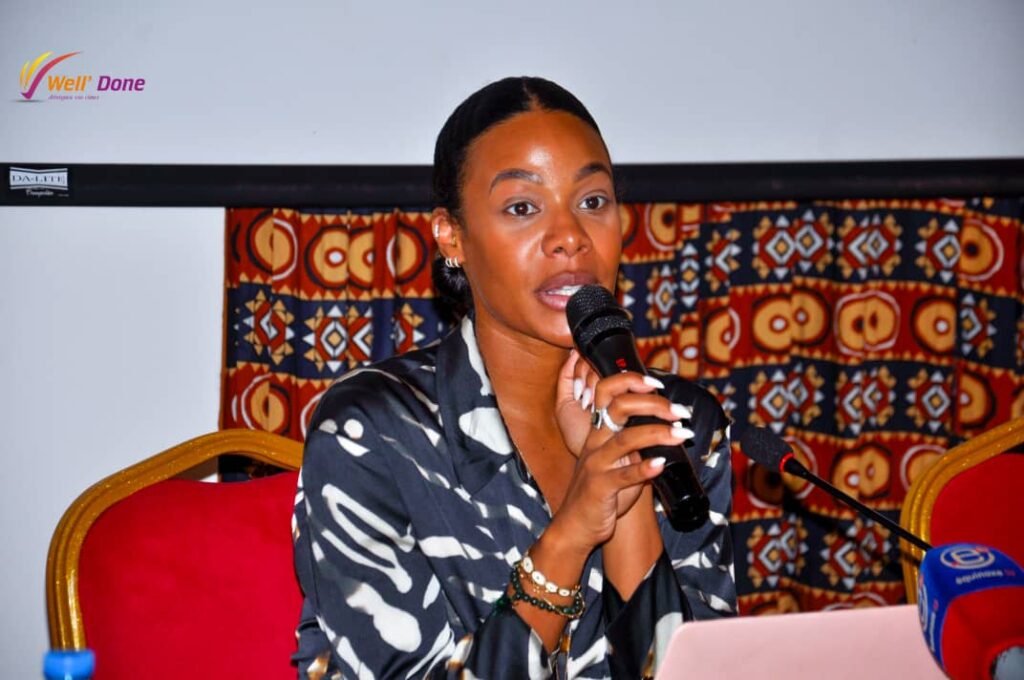
According to WildAid’s staff, the 12 episodes program will tackle the most pressing environmental issues which are current threats to the country’s nature.
She narrated: “The idea with the program Wild Cameroon is to give the population information on environmental issues that they will not have access to; to share some vital information on some topics, so that they understand and put themselves in another mindset to better understand these challenges. Wild Cameroon is a 52-minute debate show, where two to three guests are invited and focus on topics developed. We have topics on bush meat consumption, pangolins, mining, economic development conservation, etc. Through these thematic, we wish to bring information to viewers and have people from civil society organizations, experts, and members of the government as well to come together and debate on these topics. There are always solutions highlighted at the end of the show and our key objective is to open a conversation among the population, and we also relay this show on social media so that people online as well can give their opinions…”
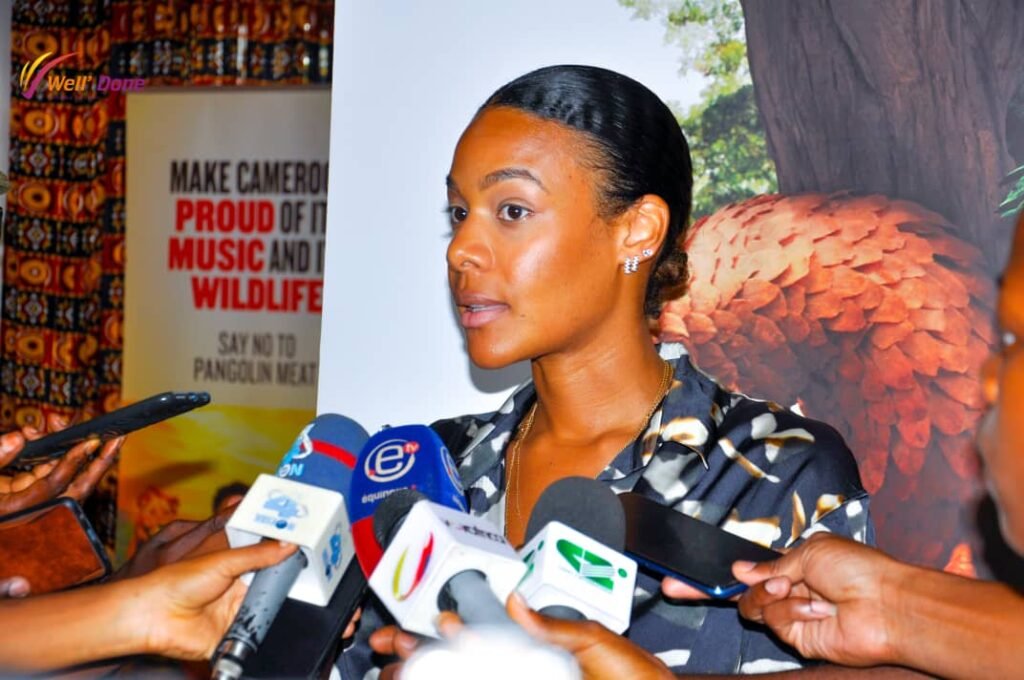
As underscored by Esther Louanga, Project Manager of the TV program Wild Cameroon in WildAid, the newly designed program that comes in to unveil relevant information to the public has been put in place to illustrate the beautiful environment, and rich nature of Cameroon, and to encourage various stakeholders to preserve wildlife heritage.
She believes the program that was set in motion by WildAid can be multiplied in different media outlets.
According to Mrs. Louanga, journalists can develop a keen interest in environmental stories and report on issues affecting nature in general.
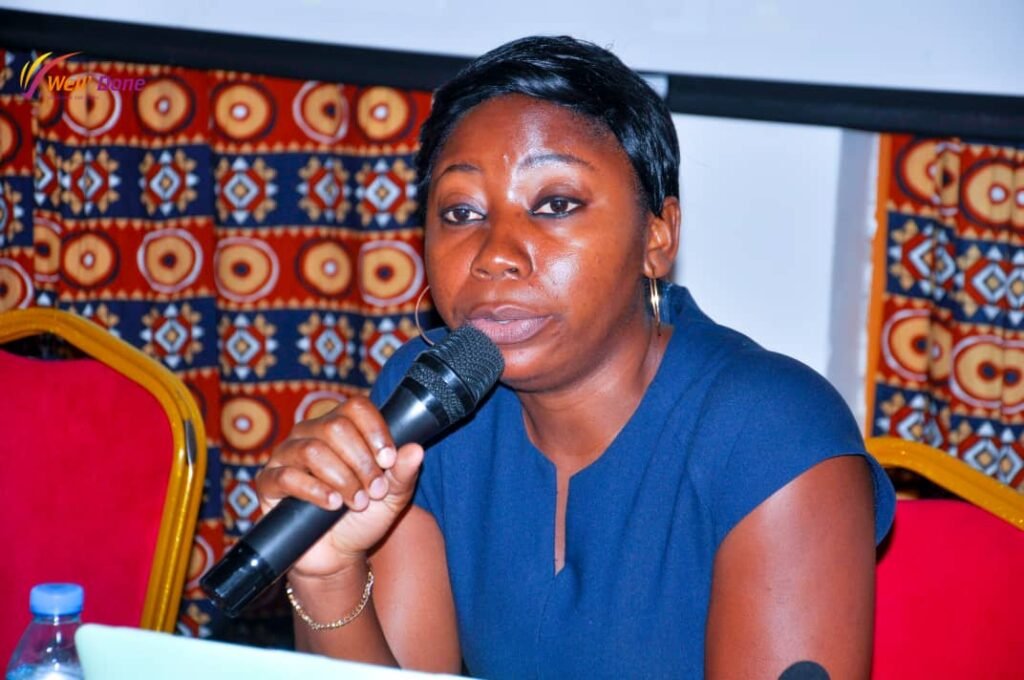
On her part, the TV show debate anchor, Marie-Bernadette Kafka shared the amazing experience she had so far on the field with the production team.
Though it was challenging to interview some people and grab information in some remote areas, she praised WildAid for the opportunity granted to her.
“In my debut as a journalist, I was not interested in reporting on environmental issues but today environmental reporting has taken my heart. It is more than a passion. I love it. I appreciate the collaboration that was created with WildAid and different stakeholders…” Marie-Bernadette Kafka said.
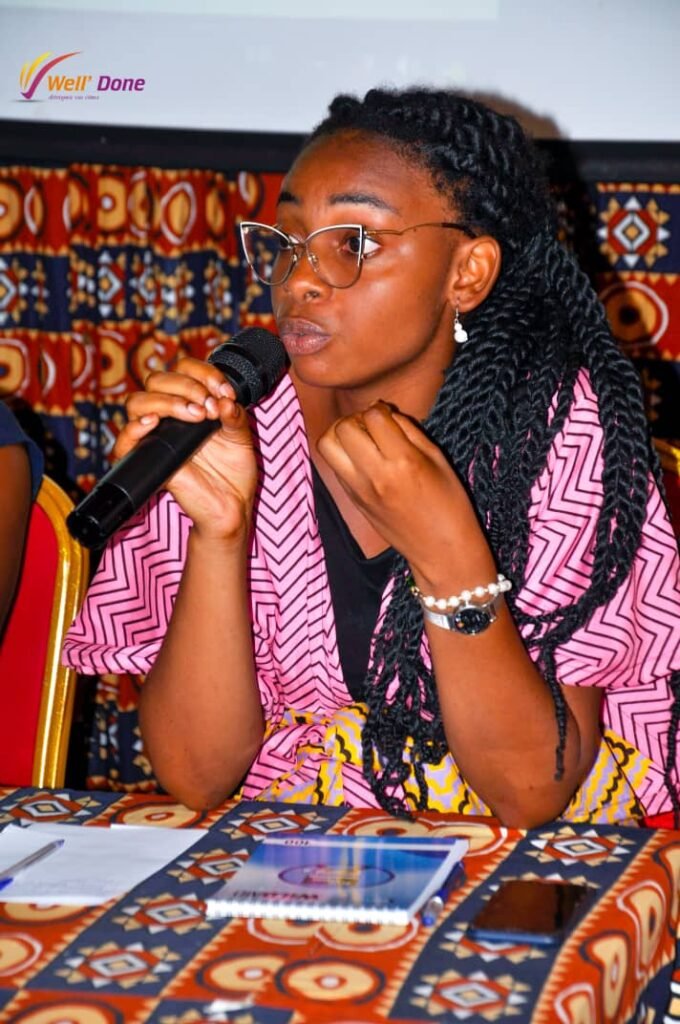
The Director of Vision 4, Boney Phillippe hailed the collaboration set up between WildAid and Anecdote media group, and on behalf of his hierarchy, he extended the wish for the program to go a long way.
He said Vision 4 is not only a commercial TV channel that welcomes fruitful partners but a media with a social responsibility to best inform the population and impact the education of its audience.
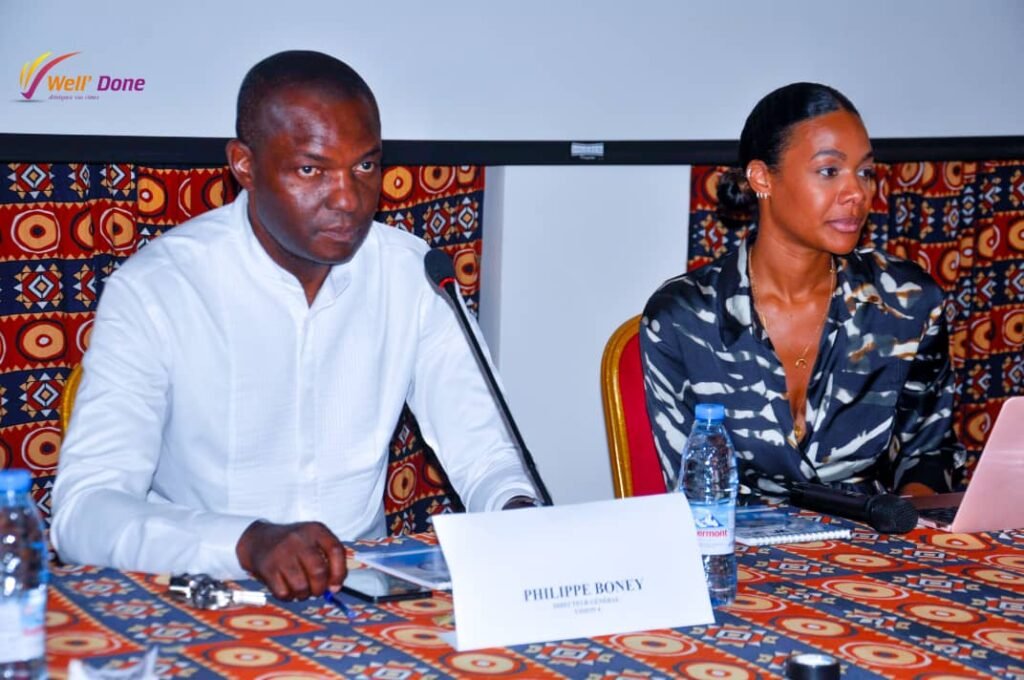
It was equally disclosed during the exchange with media practitioners that, two of the most important themes that emerged from the debates were the need for Cameroon not only to enforce its laws protecting wildlife and habitats, much more effectively, but also to strengthen those laws.
Luc Evouna, wildlife trade officer for Central Africa for Traffic, took part in the press conference to highlight journalists on the 1994 Forestry, Wildlife and Fisheries law which is in its revision process.
The expert said: “The fight against wildlife crime in Cameroon would have been more successful today if the process of revising the 1994 Forestry, Wildlife, and Fisheries law had already been completed to take into account the evolution of new threats through more dissuasive sanctions for traffickers and other criminal networks.”

On an additional note, WildAid’s Francophone Africa Representative, Jennifer Biffot outlined the need to preserve Cameroon’s unique natural richness which could be a lucrative source of revenues and employment as well as a path to economic development.
Mrs. Biffot states that: “Cameroon has a unique natural richness which, if well preserved and valued, could help create jobs and develop a new economy that Cameroon would greatly benefit from. Sharing valuable information about the environment is crucial as our well-being depends on it.”
Since 2022, WildAid has launched a series of informative and advocacy campaigns in Cameroon. One of these major public awareness campaigns is on the protection of endangered species such as pangolins.
The campaign highlights their illegal and unsustainable use in the bush meat trade and the risks of zoonotic disease transmission.
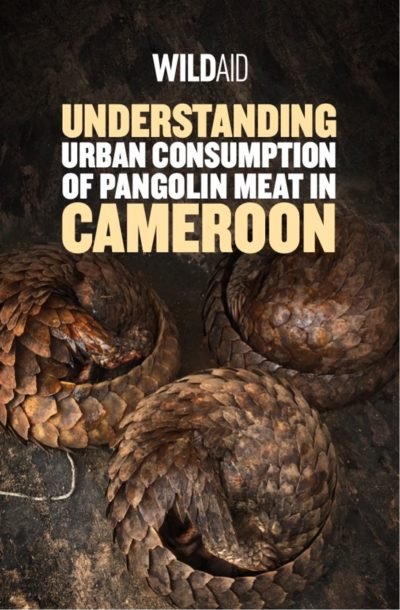
Some football legends such as Rigobert Song, Roger Milla, and Patrick Mboma are backing the campaign, along with other leading artist musicians like Stanley Enow and Locko, and visual artist Toh Bright. Through this awareness campaign, they hope to inspire Cameroonians to protect the country’s incredible wildlife for future generations.
About WildAid
WildAid inspires change and empowers the world to protect wildlife and vital habitats from critical threats including illegal wildlife trafficking, climate change, and illegal fishing. WildAid delivers impact at scale in two distinct ways: 1) creating innovative communications campaigns that inspire millions of people in China, South East Asia, Africa, and the U.S. to protect endangered wildlife and reduce climate impacts, and 2) strengthening effective ocean enforcement of priority marine areas including marine protected areas, coastal fisheries, coral reefs, and blue carbon habitats with government, NGO, and community partners in 16 countries around the globe.
Elise Kenimbeni



